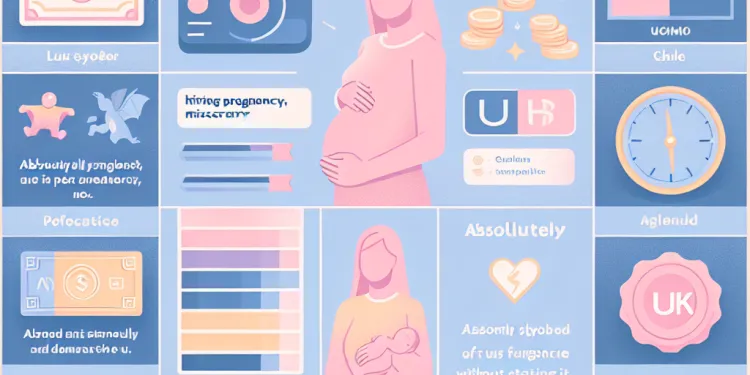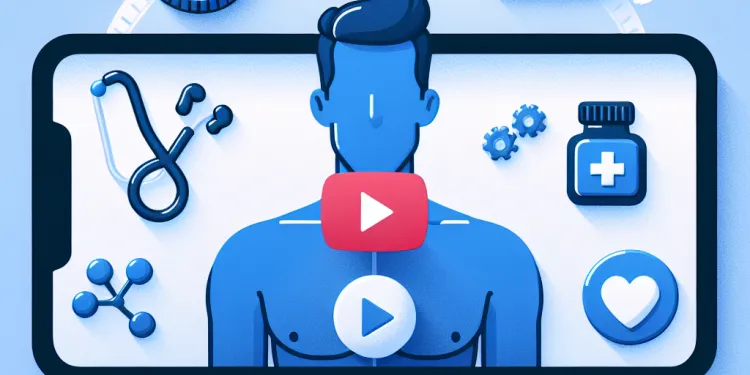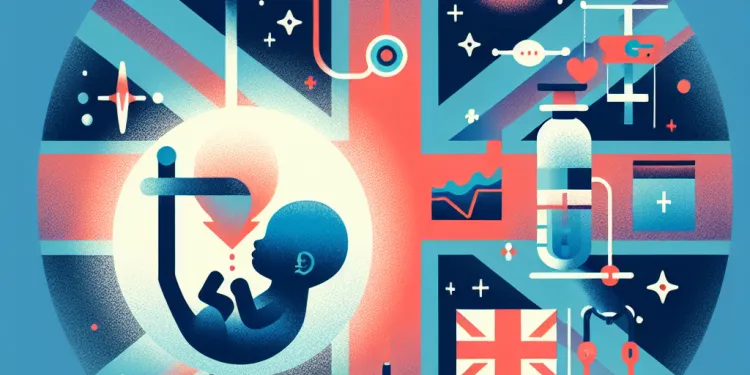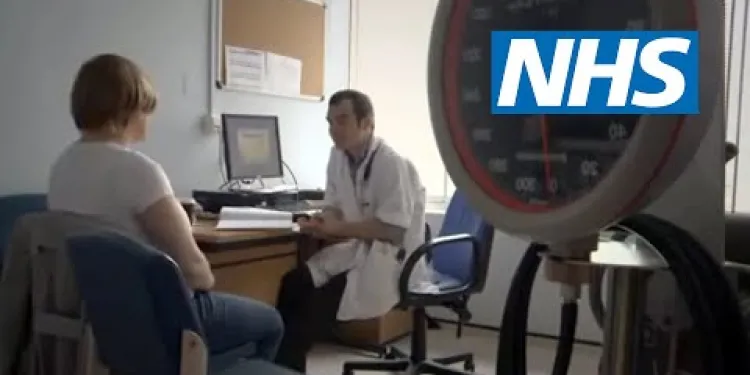Find Help
More Items From Ergsy search
-

What is the risk of miscarriage? | NHS
Relevance: 100%
-

Can a pregnancy test detect a miscarriage?
Relevance: 72%
-

Who is most at risk from measles?
Relevance: 38%
-

Are there risks associated with IVF?
Relevance: 37%
-

Who is at higher risk for thrombosis?
Relevance: 25%
-

What are the risk factors for thrombosis?
Relevance: 25%
-

Who is at risk for testicular cancer?
Relevance: 25%
-

Who is at risk for developing BPH?
Relevance: 25%
-

Who is at risk of developing shingles?
Relevance: 25%
-

Am I more at risk of prostate cancer?
Relevance: 25%
-

Who is at risk of developing SAD?
Relevance: 25%
-

Who is at risk for flesh-eating disease?
Relevance: 25%
-

Are there any risks associated with facelifts?
Relevance: 25%
-

Who is at risk of developing eczema?
Relevance: 25%
-

What are the risks associated with a C-section?
Relevance: 25%
-

What are the risks associated with cryptocurrencies?
Relevance: 25%
-

Is there any risk of hypoglycemia with Mounjaro?
Relevance: 25%
-

Are there risks associated with blood transfusions?
Relevance: 25%
-

Are there any risks associated with mammograms?
Relevance: 24%
-

Are adults in the UK at risk from measles?
Relevance: 24%
-

What are the risk factors for bowel cancer?
Relevance: 24%
-

Is there a risk of thyroid tumors with Ozempic?
Relevance: 24%
-

What are the risk factors for a heart attack?
Relevance: 24%
-

Is HTLV a risk in blood transfusions?
Relevance: 24%
-

Who is at risk of developing Alzheimer's disease?
Relevance: 24%
-

Is genetic screening available for cancer risk?
Relevance: 24%
-

Is there a risk of permanent nerve damage?
Relevance: 23%
-

Is Hepatitis B a risk in blood transfusions?
Relevance: 23%
-
Who is at risk for developing an eating disorder?
Relevance: 23%
-

Who is at risk for severe Chikungunya infection?
Relevance: 23%
-

Are anticoagulants effective in reducing stroke risk?
Relevance: 23%
-

Who is at higher risk of contracting meningitis?
Relevance: 23%
-

Are there any risk factors for developing hypotony?
Relevance: 23%
-

What should I do if I start bleeding during early pregnancy? | NHS
Relevance: 23%
-

What health risks are associated with obesity?
Relevance: 23%
-

Who is at risk of developing Crohn's disease?
Relevance: 23%
-

Are there any risks involved in switching banks?
Relevance: 23%
-

What are the risks associated with binge drinking?
Relevance: 23%
-

Are there any known risks of overdose with Baxdrostat?
Relevance: 23%
-

Are there any serious risks associated with Ozempic?
Relevance: 23%
What is the Risk of Miscarriage? | NHS
Understanding Miscarriage
Miscarriage is the loss of a pregnancy during the first 23 weeks. It is a common yet distressing experience for many women and their partners. According to the NHS, around one in eight known pregnancies end in miscarriage. These figures highlight the prevalence of miscarriage, though many more may occur before a woman realizes she is pregnant.Factors Influencing the Risk of Miscarriage
The risk of miscarriage can be influenced by several factors. Age is a significant factor; women under 30 have roughly a 1 in 10 chance of miscarriage, while those over 45 have as high as a 5 in 10 chance. Lifestyle choices, such as smoking, excessive alcohol consumption, and drug use, also elevate the risk. Medical conditions like diabetes and thyroid disorders, as well as uterine or cervical problems, can contribute. Obesity is another risk factor, with women who are obese facing a higher likelihood of miscarriage.Genetic and Chromosomal Abnormalities
Many miscarriages are caused by issues in the development of the fetus. Genetic or chromosomal abnormalities are common culprits, accounting for about 50% of miscarriages. These abnormalities usually occur by chance, with no controllable factors involved. They often prevent the fetus from developing normally, leading to pregnancy loss.Symptoms and Diagnosis
Common symptoms of miscarriage include vaginal bleeding, cramping, and pain in the abdomen. However, spotting or light bleeding can occur in many normal pregnancies. If these symptoms are noticed, it's crucial to consult a healthcare provider immediately for appropriate guidance. Diagnosis often involves pelvic examinations, ultrasound scans, and blood tests to confirm the miscarriage and rule out other conditions.Emotional Impact and Support
Experiencing a miscarriage can be emotionally challenging. Feelings of grief, guilt, sadness, and anger are common. Seeking support is essential for emotional recovery. The NHS provides resources and support networks, including counseling and support groups, to help women and their partners navigate this difficult time. It is important to understand that most women who have a miscarriage go on to have a successful pregnancy in the future.Preventative Measures
While not all miscarriages can be prevented, certain measures may reduce the risk. Maintaining a healthy lifestyle by avoiding smoking, alcohol, and illicit drugs, managing chronic medical conditions, and achieving a healthy weight before pregnancy can be beneficial. Regular prenatal care and following medical advice during pregnancy also play a crucial role.Conclusion
Understanding the risk of miscarriage and the factors involved is fundamental for expectant mothers and their partners. While some risks cannot be controlled, adopting a healthy lifestyle and seeking regular medical advise can enhance the likelihood of a successful pregnancy. Always consult with healthcare providers for personal advice and support.What is the Risk of Miscarriage? | NHS
Understanding Miscarriage
Miscarriage means losing a baby during the first 23 weeks of being pregnant. This can be very sad for many women and their partners. Doctors say about 1 out of 8 pregnancies ends this way. Some miscarriages happen before a woman even knows she is pregnant.Factors Influencing the Risk of Miscarriage
Different things can make a miscarriage more likely. Age is important: women under 30 have a 1 in 10 chance, but women over 45 years have a 5 in 10 chance. Choices like smoking, drinking too much alcohol, and taking drugs can increase the risk. Health issues like diabetes and problems with the thyroid gland or the uterus (where the baby grows) can also add risk. Being very overweight can make miscarriage more likely too.Genetic and Chromosomal Abnormalities
Many miscarriages happen because of problems when the baby is growing. These problems, called genetic or chromosomal abnormalities, happen by chance and are nobody’s fault. They stop the baby from growing as it should.Symptoms and Diagnosis
If a woman has a miscarriage, she may have bleeding, cramps, and tummy pain. But, light bleeding can happen in healthy pregnancies too. If these signs appear, it's important to talk to a doctor right away. Doctors may do checks like an ultrasound scan or blood tests to understand what is happening.Emotional Impact and Support
Having a miscarriage can make people feel very sad, guilty, or angry. It’s normal to feel this way. Getting help from others is very important. Doctors and the NHS can offer support and have groups or counselors to talk to. Remember, many women who have a miscarriage can have healthy pregnancies later on.Preventative Measures
Not all miscarriages can be stopped, but doing some things may help. Women can try to be healthy by not smoking, not drinking alcohol, or using drugs. Managing health issues and being a healthy weight can help too. Going to regular doctor appointments and listening to their advice is very important during pregnancy.Conclusion
Learning about miscarriage and how to lower the risk helps expectant mothers and their partners. While not all risks can be changed, living healthily and seeing the doctor often can help make a pregnancy more successful. Always talk to doctors for advice and support.Frequently Asked Questions
What is the risk of miscarriage for women below 30?
The risk of miscarriage for women under 30 is about 1 in 10 pregnancies.
How does age affect miscarriage risk?
The risk of miscarriage increases with age. For women aged 35 to 39, it's about 2 in 10 pregnancies, and for women over 45, it's more than 5 in 10 pregnancies.
What are the most common causes of miscarriage?
Most miscarriages are due to abnormal chromosomes in the baby, which stop the baby from developing properly.
Does lifestyle influence the risk of miscarriage?
Yes, smoking, drinking alcohol, using drugs, and being overweight can increase the risk of miscarriage.
Can miscarriage be prevented?
While not all miscarriages can be prevented, leading a healthy lifestyle, managing stress, and regular antenatal care can reduce the risk.
What are the symptoms of a miscarriage?
Symptoms may include vaginal bleeding, cramps, and pain in the abdomen. However, some women may not experience any symptoms.
When should I seek medical advice during pregnancy?
If you experience heavy bleeding, severe abdominal pain, or if you are worried about your pregnancy, seek medical advice immediately.
Are there any medical conditions that can increase the risk of miscarriage?
Conditions such as diabetes, thyroid disease, and certain infections can increase the risk of miscarriage.
Does a previous miscarriage affect my future pregnancies?
Having one or two miscarriages does not typically affect your chances of having a successful future pregnancy.
How common is a miscarriage?
Miscarriages are quite common and occur in about 1 in 8 pregnancies where the woman knows she's pregnant.
What weeks of pregnancy are most at risk for miscarriage?
Miscarriages are most common in the first 12 weeks of pregnancy.
Can stress cause a miscarriage?
While high levels of stress are not shown to directly cause miscarriage, managing stress is important for overall pregnancy health.
Is heavy exercise safe during pregnancy?
Moderate exercise is generally safe during pregnancy, but heavy exercise should be discussed with your healthcare provider.
Can a miscarriage be treated?
In some cases, treatment such as medication or surgery is required to remove pregnancy tissue, but many miscarriages go through naturally without the need for medical intervention.
What support is available for women who have had a miscarriage?
Support is available from healthcare providers, counselling services, and organisations such as the Miscarriage Association in the UK.
How often do women under 30 lose a baby during pregnancy?
The chance of losing a baby for women under 30 is about 1 out of 10 pregnancies.
How does age change the chance of miscarriage?
As women get older, there is a higher chance of losing a baby. For women who are 35 to 39 years old, 2 out of 10 pregnancies might end in miscarriage. For women older than 45, more than 5 out of 10 pregnancies might end in miscarriage.
What are some common reasons why a pregnancy might end early?
Most miscarriages happen because the baby has problems with its chromosomes. This means the baby can't grow the right way.
Can the way you live affect the chance of losing a baby?
The way you live, like what you eat, if you exercise, or if you smoke, can change the chance of having a healthy baby. Here are some tips to help:
- Eat Healthy: Try eating fruits and vegetables every day.
- Exercise: Moving your body can be good. Try walking or light activity.
- Avoid Smoking: Smoking is not good for you or the baby.
- Talk to a Doctor: It's good to ask a doctor for more information and help.
You can also use apps or talk to someone you trust to help you stay healthy.
Yes, doing things like smoking, drinking alcohol, using drugs, and being too heavy can make it more likely to have a miscarriage.
You can use pictures or talk with someone to help understand better.
Can you stop a miscarriage from happening?
Sometimes, a miscarriage happens and it's not anyone's fault.
There are a few things that might help:
- Eat healthy food.
- Exercise a little bit, like walking.
- Don't smoke or drink alcohol.
- Take vitamins if the doctor says to.
If you are worried, talking to a doctor can help. A doctor knows a lot and can give good advice.
Using apps or reminder notes can help you remember to eat well and take your vitamins every day.
Sometimes, a baby can stop growing inside a mommy. This is sad, and it is called a miscarriage. We can't always stop this from happening, but we can do some things to help:
- Eat healthy foods and stay active.
- Try to feel calm and happy.
- Visit the doctor often when expecting a baby.
These things can help keep the baby safe.
What are the signs of a miscarriage?
A miscarriage is when a pregnancy ends early. Here are signs to look for:
- Bleeding from the vagina. It might be heavy or light.
- Pain in the belly or lower back. This might feel like cramps.
- Feeling dizzy or weak.
If you think you are having a miscarriage, tell an adult you trust. A doctor can help you understand what is happening. You can also use apps with simple instructions or ask someone to read with you.
You might have signs like bleeding from the vagina, stomach cramps, and tummy pain. But sometimes, women might not feel anything at all.
When Should I Ask a Doctor for Help When Pregnant?
Being pregnant means a baby is growing in your belly. It's important to stay healthy and safe.
Here are times you should talk to a doctor:
- If you feel a lot of pain in your belly.
- If you are bleeding.
- If you have a fever.
- If you feel dizzy or very weak.
- If the baby is not moving as much as usual.
Remember, it's always okay to ask questions. If you are worried, talk to someone you trust, like a family member or friend. They can help you talk to a doctor.
Using a calendar or diary can help you remember important things to tell the doctor.
If you are bleeding a lot, have really bad tummy pain, or you are worried about your baby, talk to a doctor right away.
Can some health problems make miscarriage more likely?
Some health problems can make it more likely to lose a baby in early pregnancy. These health problems include diabetes, thyroid problems, and some infections.
Can having a miscarriage before affect my future pregnancies?
If you have had a miscarriage before, you might worry about getting pregnant again. It's normal to have these feelings, but most people can have healthy pregnancies after a miscarriage.
Here are some tools that might help you:
- Talk to a doctor: They can give you advice and answer your questions.
- Join a support group: Sharing with others can make you feel better.
- Practice self-care: Get plenty of rest, eat well, and do things that make you happy.
Having one or two miscarriages usually does not stop you from having a baby in the future.
How often do miscarriages happen?
Miscarriages happen quite often. About 1 out of every 8 women who know they are pregnant have a miscarriage.
When are miscarriages most likely to happen during pregnancy?
Miscarriages often happen in the first 12 weeks of pregnancy. This is the first three months.
If you want help or support, it can be good to talk to a doctor or nurse. You can also use apps or books to learn more about pregnancy. They can help you understand what is happening.
Most miscarriages happen in the first 12 weeks when a woman is pregnant.
Can stress make someone lose a baby during pregnancy?
Feeling very stressed does not cause a miscarriage. But it is still good to manage stress to keep the pregnancy healthy.
Is it OK to do heavy exercise when you are pregnant?
When you have a baby growing inside you, it's important to be careful. Some exercise can be safe and good for you and the baby.
Before doing hard exercise, talk to a doctor. They can tell you what is safe.
It's a good idea to start slow and listen to your body. If you feel tired or hurt, stop and rest.
Doing things like walking or swimming can be nice and gentle.
Remember to drink water, eat healthy food, and get enough sleep.
Using pictures or apps can help you understand what exercises are safe.
It's usually safe to do light exercise when you are pregnant. If you want to do hard exercise, talk to your doctor first.
Can doctors help after a miscarriage?
If a woman loses a baby during pregnancy, it is called a miscarriage. Doctors and nurses can help after a miscarriage.
They will check if the woman is healthy. Sometimes, the woman may need medicine or a small operation to make sure everything is okay.
If you or someone you know has had a miscarriage, talking to a doctor or nurse is important.
It can also help to talk to a friend or counselor about how you feel.
Sometimes, doctors need to help by giving medicine or doing surgery to take away pregnancy tissue. But often, miscarriages happen on their own without needing a doctor's help.
Help for Women Who Have Had a Miscarriage
If a woman has lost a baby, there is help for her.
Doctors and nurses can talk to her and help her feel better.
There are groups where women can talk to others who know how they feel.
She can also call a support phone line to talk to someone who will listen.
Family and friends can help by being there and listening.
Writing down her feelings in a notebook can also help her feel better.
You can get help from doctors, talking support centers, and groups like the Miscarriage Association in the UK.
Useful Links
Have you found an error, or do you have a link or some information you would like to share? Please let us know using the form below.
-->
This website offers general information and is not a substitute for professional advice.
Always seek guidance from qualified professionals.
If you have any medical concerns or need urgent help, contact a healthcare professional or emergency services immediately.
Some of this content was generated with AI assistance. We’ve done our best to keep it accurate, helpful, and human-friendly.
- Ergsy carfully checks the information in the videos we provide here.
- Videos shown by Youtube after a video has completed, have NOT been reviewed by ERGSY.
- To view, click the arrow in centre of video.
- Most of the videos you find here will have subtitles and/or closed captions available.
- You may need to turn these on, and choose your preferred language.
- Go to the video you'd like to watch.
- If closed captions (CC) are available, settings will be visible on the bottom right of the video player.
- To turn on Captions, click settings .
- To turn off Captions, click settings again.
More Items From Ergsy search
-

What is the risk of miscarriage? | NHS
Relevance: 100%
-

Can a pregnancy test detect a miscarriage?
Relevance: 72%
-

Who is most at risk from measles?
Relevance: 38%
-

Are there risks associated with IVF?
Relevance: 37%
-

Who is at higher risk for thrombosis?
Relevance: 25%
-

What are the risk factors for thrombosis?
Relevance: 25%
-

Who is at risk for testicular cancer?
Relevance: 25%
-

Who is at risk for developing BPH?
Relevance: 25%
-

Who is at risk of developing shingles?
Relevance: 25%
-

Am I more at risk of prostate cancer?
Relevance: 25%
-

Who is at risk of developing SAD?
Relevance: 25%
-

Who is at risk for flesh-eating disease?
Relevance: 25%
-

Are there any risks associated with facelifts?
Relevance: 25%
-

Who is at risk of developing eczema?
Relevance: 25%
-

What are the risks associated with a C-section?
Relevance: 25%
-

What are the risks associated with cryptocurrencies?
Relevance: 25%
-

Is there any risk of hypoglycemia with Mounjaro?
Relevance: 25%
-

Are there risks associated with blood transfusions?
Relevance: 25%
-

Are there any risks associated with mammograms?
Relevance: 24%
-

Are adults in the UK at risk from measles?
Relevance: 24%
-

What are the risk factors for bowel cancer?
Relevance: 24%
-

Is there a risk of thyroid tumors with Ozempic?
Relevance: 24%
-

What are the risk factors for a heart attack?
Relevance: 24%
-

Is HTLV a risk in blood transfusions?
Relevance: 24%
-

Who is at risk of developing Alzheimer's disease?
Relevance: 24%
-

Is genetic screening available for cancer risk?
Relevance: 24%
-

Is there a risk of permanent nerve damage?
Relevance: 23%
-

Is Hepatitis B a risk in blood transfusions?
Relevance: 23%
-
Who is at risk for developing an eating disorder?
Relevance: 23%
-

Who is at risk for severe Chikungunya infection?
Relevance: 23%
-

Are anticoagulants effective in reducing stroke risk?
Relevance: 23%
-

Who is at higher risk of contracting meningitis?
Relevance: 23%
-

Are there any risk factors for developing hypotony?
Relevance: 23%
-

What should I do if I start bleeding during early pregnancy? | NHS
Relevance: 23%
-

What health risks are associated with obesity?
Relevance: 23%
-

Who is at risk of developing Crohn's disease?
Relevance: 23%
-

Are there any risks involved in switching banks?
Relevance: 23%
-

What are the risks associated with binge drinking?
Relevance: 23%
-

Are there any known risks of overdose with Baxdrostat?
Relevance: 23%
-

Are there any serious risks associated with Ozempic?
Relevance: 23%


